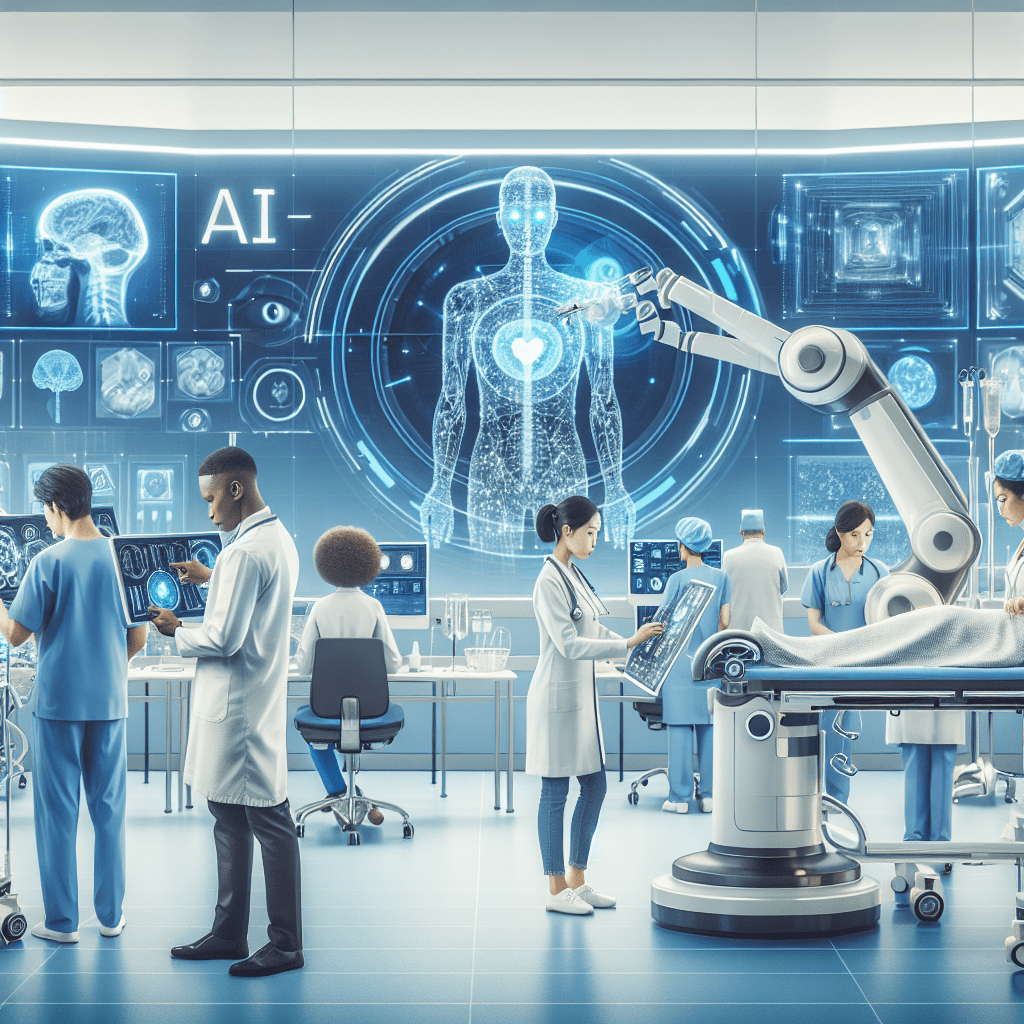With the rapid advancements in technology, artificial intelligence (AI) has made its way into the healthcare industry, revolutionizing the way medical professionals diagnose and treat patients. AI algorithms can analyze vast amounts of data in a fraction of the time it would take a human, leading to more accurate and timely diagnoses. In this article, we will explore how AI is transforming healthcare and its impact on diagnosis and treatment.
AI in Diagnosis
AI has the potential to revolutionize the way diseases are diagnosed. By analyzing a patient’s symptoms and medical history, AI algorithms can suggest potential diagnoses based on patterns and trends in data. This not only speeds up the diagnostic process but also reduces the likelihood of human error.
One notable example of AI in diagnosis is IBM’s Watson for Oncology, which can analyze a patient’s medical records and provide treatment recommendations for cancer patients. Studies have shown that Watson for Oncology has the potential to improve patient outcomes by providing personalized treatment options.
AI in Treatment
AI is also transforming the way patients are treated. By analyzing genetic data and medical records, AI algorithms can tailor treatment plans to individual patients, leading to more effective treatment outcomes. Additionally, AI-powered robots can assist surgeons during procedures, increasing surgical precision and reducing the risk of complications.
One exciting development in AI-based treatment is the use of virtual assistants to monitor patients’ health remotely. These virtual assistants can track patients’ vital signs and alert healthcare providers to any abnormalities, allowing for early intervention and improved patient outcomes.
AI in Healthcare: Ethical Considerations
While AI has the potential to revolutionize healthcare, there are ethical considerations that must be addressed. One concern is the potential for AI algorithms to introduce bias into decision-making processes. It is crucial for developers to ensure that AI algorithms are unbiased and ethically sound to avoid unintended consequences.
Additionally, there are concerns about patient privacy and data security when using AI in healthcare. Healthcare providers must take steps to protect patient data and ensure that it is not misused or compromised in any way.
Conclusion
AI is poised to be a game changer in healthcare, transforming the way diseases are diagnosed and treated. From personalized treatment plans to virtual assistants monitoring patients’ health, AI has the potential to improve patient outcomes and revolutionize the healthcare industry. As AI continues to advance, it is essential for healthcare providers to address ethical considerations and ensure that patient privacy and data security are protected.
FAQs
1. How is AI used in healthcare?
AI is used in healthcare to analyze medical data, assist in diagnosis, tailor treatment plans to individual patients, and monitor patients’ health remotely.
2. What are some examples of AI in healthcare?
Examples of AI in healthcare include IBM’s Watson for Oncology, AI-powered surgical robots, and virtual assistants that monitor patients’ health remotely.
3. What are the ethical considerations of using AI in healthcare?
Ethical considerations of using AI in healthcare include the potential for bias in decision-making processes, patient privacy concerns, and data security issues.
Quotes
“The use of artificial intelligence in healthcare has the potential to revolutionize the way diseases are diagnosed and treated, leading to more personalized and effective care for patients.” – Dr. Emily Smith, Chief Medical Officer
#Healthcare #Game #Changer #Diagnosis #Treatment


